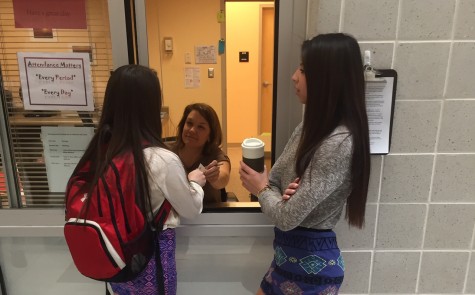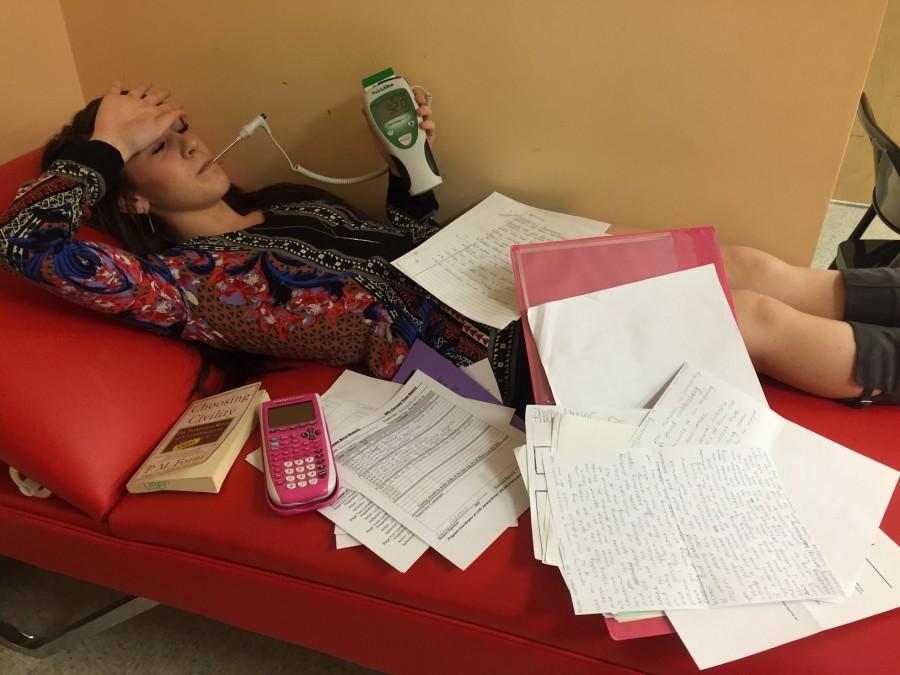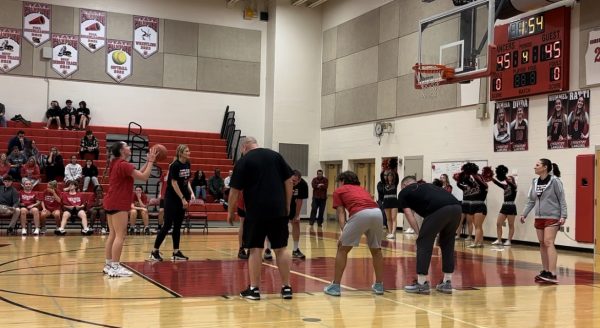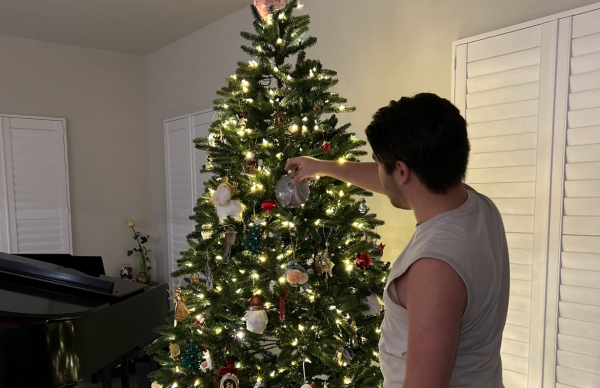Senioritis: We’d fight for a cure but we just don’t care
Senior Alex Palmer struck with senioritis in the health office.
March 14, 2015
Definition and Overview:
Senioritis (n.) – a dangerous disease that affects high school seniors all across the country that results in severe laziness, procrastination, and frequent absences. Others may experience apathy towards responsibilities, and, in extreme cases, little to no motivation.
It’s important to identify senioritis as early as possible for a number of reasons. If untreated, senioritis can sometimes cause complications such as failure to graduate.
If you are experiencing any symptoms of senioritis, make an appointment with your school counselor as soon as possible for prompt treatment.
Other Symptoms Include:
- Loss of hand mobility when it comes to putting down your cell phone:
Muscle weakness may occur after long periods of time spent on Twitter and Instagram, especially when it is time to put down your phone and open your books.
- Chronic snooze button syndrome:
Sudden bursts of energy leaving school on a Friday afternoon that could last through the whole weekend. This is followed by a sudden loss of motivation to get ready for class in the mornings, and frequent abuse of the snooze button can lead to an increase in tardiness as well.
- Short term memory loss:
Rolling out of bed with lack of desire to tend to your personal appearance is often followed by failure to complete homework, or grabbing any other materials needed for school.
Causes:
An early symptom of senioritis often develops from exhaustion due to the college application process, but it is most commonly caused by receiving college acceptance letters.
Risk Factors:
While senioritis can occur at any time of the year, students are more susceptible to the disease towards the beginning of the last semester of high school. In severe cases of senioritis, complications such as failure to graduate may occur. Studies have found that students on work study and open campus and/or with a full schedule of electives, are more prone to the disease and develop Disengagement Syndrome.
Expert Answers:
Renata Emery, Counseling M.A.
“Many students come into my office asking to drop classes, but keep to your original schedule at all costs. The best home remedy to manage your symptoms is to set and review your goals. Focus on the big picture: what you want to be, and achieve, and what do you have to do to get there?”
“Easily influenced people are more susceptible to catching senioritis from their friends, so it is important to stay independent throughout your senior year,” she says.
Your school counselor may prescribe Naviance to help manage your short term and long term goals.
Patient Profiles:
“My senioritis abruptly began towards the middle of my first semester as a senior. I found myself “bumming it” to school almost every day. I began procrastinating and had an excessive desire to stay in bed and watch Netflix. Soon, my once perfect attendance record slowly began to show unexcused tardies and absences. The cause of my senioritis was the many college acceptance letters I received at the start of my senior year. For the past 3 years I have thoroughly applied myself in school so I believe I have earned a few days off. I reward myself for my hard work in school from freshman to junior year with days dedicated to shopping, eating, or sleeping -often resulting in chronic snooze button syndrome the next morning.”
–Student with severe senioritis who wishes to remain anonymous
“For a very short period of time I was diagnosed with senioritis. I overcame this crippling disease by getting more involved with school activities. As the SGA President, I have obligations and responsibilities to tend to. Aspiring to be a good example to my fellow classmates, and dedicating myself to the responsibilities I have at school, have motivated me to get to class on time and complete my work. When my senioritis symptoms flare up, I remember that I enjoy the classes I take and I get to see my friends every day at school.”
–Senior Kyle Johnson
“Towards the end of my senior year, I was very tired and would show up late to all my classes. I hardly ever did my work and never paid any attention to my teachers. I would wear the clothes I slept in to school and had trouble keeping my eyes open while sitting in class. The treatment I received for my senioritis was graduation. After overcoming this disease, I have more motivation than ever to complete assignments and apply myself in college. I have learned to manage my chronic snooze button syndrome by getting lots of rest every night, and not putting off my assignments to complete them at midnight the day they are due.”
– Mike Wilkerson LHS Class of 2014 Alumni
Treatment:
There is only one known treatment to cure senioritis. Graduation. Long-term recovery requires an additional summer of relaxation.

Seniors Alex Palmer and Phoebe Kolesar received late passes at attendance.













